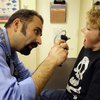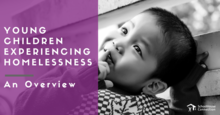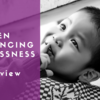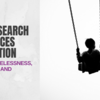0
Policy Brief
Community:
Mar 28, 2023
Family separations and family detention have been used as part of immigration enforcement in the United States. These practices and policies are severely detrimental to child health and wellbeing and can cause lasting harm.
This brief reviews the state of the research on the developmental, psychological, and physical toll of family separation and family detention on children and their caregivers. Grounded in this science, we provide a set of policy recommendations that protect child health and wellbeing.
Authored by: Kelly Edyburn, PhD & Shantel Meek, PhD for the Children's Equity Project
Topics: Child welfare, Early childhood, Health, Immigrants, Legislation & Policy, Mental health, Youth
 Shared by Sandra Ware
Shared by Sandra Ware
Sandra Ware posted a
on Mar 30, 2023
Kelly Edyburn, PhD & Shantel Meek, PhD for the Children's Equity Project
Family separations and family detention have been used as part of immigration enforcement in the United States.
0
Research
Community:
Jan 27, 2023
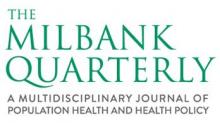
Poor maternal and child health (MCH) outcomes and rates of chronic disease are persistently high in the United States and concentrated in rural and service-deprived areas where local health departments provide most care. In a new Milbank Quarterly study, Taryn A. G. Quinlan, Amelia L. Mitchell, and Glen P. Mays of the Colorado School of Public Health use national survey data from 630 local health departments to understand the relationship between social service collaboration and the provision of direct MCH services, such as the Special Supplemental Nutrition Program for Women, Infants, and Children (WIC).
The authors found local health departments that directly offer MCH services were more likely to collaborate with community partners that provide social services. Still, more than half of these departments were considered low collaborators.
“By working together to address MCH disparities, health and social service organizations could pool resources to provide needed services and identify innovative solutions to address disparities in their communities, thereby increasing system capacity to achieve equitable health outcomes,” the authors say.
Authored by: Taryn A.G. Quinlan, Amelia L. Mitchell, Glen P. Mays for The Milbank Quarterly
Topics: dual-generation initiative, Early childhood, Health, Low-income, Partnerships, Research
 Shared by Sandra Ware
Shared by Sandra Ware
Sandra Ware posted a
on Feb 7, 2023
Taryn A.G. Quinlan, Amelia L. Mitchell, Glen P. Mays for The Milbank Quarterly
Poor maternal and child health (MCH) outcomes and rates of chronic disease are persistently high in the United States and concentrated in rural and service-deprived areas where local health departments provide most care. In a new Milbank Quarterly study, Taryn A. G. Quinlan, Amelia L.
0
Policy Brief
Community:
Jun 30, 2021
Every child in an early childhood setting should have a teacher with specialized education to promote that child’s cognitive, social, emotional, and physical development and who prepares them for success in school and in life. The National Research Council’s report from a panel of experts, Transforming the Workforce for Children Birth Through Age 8: A Unifying Foundation, lays out several recommendations for programs serving children from birth through age 8, notably that teachers "should have at a minimum a bachelor’s degree and specialization in the knowledge and competencies needed to serve as a care and education professional.
Authored by: Child Care Services Association & T.E.A.C.H.
Topics: Early childhood, Education, Post-secondary
 Shared by Kirsten Greenwell
Shared by Kirsten Greenwell
Kirsten Greenwell posted a
on Jun 30, 2021
Child Care Services Association & T.E.A.C.H.
Every child in an early childhood setting should have a teacher with specialized education to promote that child’s cognitive, social, emotional, and physical development and who prepares them for success in school and in life.
0
Policy Brief
Community:
Dec 4, 2019

In California, more than 3.7 million students were eligible for free or reduced priced school meals in the 2017-2018 school year. For many of those students, school meals are the primary source of regular access to healthy food. When the bell rings at 3:00 or lets out for summer break, many of those students go home to nutritional uncertainty or high-calorie, low-nutrient foods.
For many low-income families, the out-of-school-time food access gap increases family stress: limited budgets are stretched further to cover food, rent, utilities, transportation, medications, and chidcare costs. For very young children, food insecurity can negatively impact brain and physical development. For children of all ages, disrupted access to healthy food can impact behavior, increase risk of obesity, make it harder to concentrate, or exacerbate existing healthy conditions like type 2 diabetes. The impact is not limited to summer, and can lead to a rocky start to the school year, negatively impacting school attendance and students’ ability to effectively participate in school.
Read the full brief to learn how public and affordable housing communities can address food insecurity for children and youth with the help of out-of-school-time USDA child nutrition programs.
Authored by:
Topics: Advocacy, Early childhood, Food insecurity, Health, Healthy homes, Housing, Legislation & Policy, Low-income, Nutrition, Out-of-school time, West Coast, Youth
 Shared by Linda Lu
Shared by Linda Lu
Linda Lu posted a
on Dec 4, 2019
In California, more than 3.7 million students were eligible for free or reduced priced school meals in the 2017-2018 school year. For many of those students, school meals are the primary source of regular access to healthy food.
0
Research
Community:
Jun 5, 2019
A new report by Chapin Hall at the University of Chicago finds that youth homelessness has its origins in early family experiences, including family homelessness. The findings make painfully clear that housing alone is insufficient to prevent and “end” youth homelessness, and that addressing youth homelessness alone, without explicit connections and fervent attention to family homelessness, will result in continued homelessness for all populations.
Authored by: SchoolHouse Connection
Topics: Early childhood, Homelessness, Housing, Legislation & Policy
 Shared by Housing Is
Shared by Housing Is
Housing Is posted a
on Jun 5, 2019
A new report by Chapin Hall at the University of Chicago finds that youth homelessness has its origins in early family experiences, including family homelessness.
0
Research
Community:
Early childhood education programs can impact life outcomes in ways that span generations, according to new research from Nobel laureate James Heckman. In a pair of companion papers released this week, the pioneering University of Chicago economist found that the children of those who participated in a landmark 1960s study still saw improvements in education, health and employment. The children saw such benefits without participating in the same preschool program as their parents—suggesting that early education can contribute to lasting upward mobility and help break cycles of poverty
Authored by: Professor James Heckman and Ganesh Karapakula
Topics: Child welfare, Dual-generation, Early childhood, Family engagement, Research
 Shared by Housing Is
Shared by Housing Is
Housing Is posted a
on May 21, 2019
Professor James Heckman and Ganesh Karapakula
Early childhood education programs can impact life outcomes in ways that span generations, according to new research from Nobel laureate James Heckman.
0
Policy Brief
Community:
Congress has an important opportunity in 2019 to improve the health of millions of our nation’s children by passing a strong reauthorization that protects and strengthens the child nutrition programs. These successful, cost-effective federal nutrition programs play a critical role in helping children in low-income families achieve access to child care, educational, and enrichment activities while improving overall nutrition, health, development, and academic achievement.
Authored by: Feeding America and Food Research & Action Center
Topics: Child welfare, Early childhood, Food insecurity, Funding, Legislation & Policy, Low-income, Nutrition
 Shared by Housing Is
Shared by Housing Is
Housing Is posted a
on May 1, 2019
Feeding America and Food Research & Action Center
Congress has an important opportunity in 2019 to improve the health of millions of our nation’s children by passing a strong reauthorization that protects and strengthens the child nutrition programs.
0
Research
Community:
Apr 29, 2019
When following the mother–child pair from pregnancy through five years postpartum, the estimated cost is $14.2 billion for births in 2017, or an average of $32,000 for every mother–child pair affected but not treated.
Authored by: Mathematica
Topics: Dual-generation, Early childhood, Mental health, Pre-natal, Research
 Shared by Housing Is
Shared by Housing Is
Housing Is posted a
on Apr 30, 2019
When following the mother–child pair from pregnancy through five years postpartum, the estimated cost is $14.2 billion for births in 2017, or an average of $32,000 for every mother–child pair affected but not treated.
0
Research
Community:
Apr 23, 2019
Sweeping changes designed to make the food more nutritious in a federal assistance program for low-income families reduced the risk for obesity for 4-year-olds who had been on the program since birth, according to new research.
Authored by: UCLA Fielding School of Public Health
Topics: Early childhood, Food insecurity, Low-income, Nutrition, Obesity, Research
 Shared by Housing Is
Shared by Housing Is
Housing Is posted a
on Apr 29, 2019
UCLA Fielding School of Public Health
Sweeping changes designed to make the food more nutritious in a federal assistance program for low-income families reduced the risk for obesity for 4-year-olds who had been on the program since birth, according to new research.
0
Research
Community:
Nov 27, 2018
A growing body of research suggests that housing eviction is more common than previously recognized and may play an important role in the reproduction of poverty. The proportion of children affected by housing eviction, however, remains largely unknown. We estimate that one in seven children born in large U.S. cities in 1998–2000 experienced at least one eviction for nonpayment of rent or mortgage between birth and age 15. Rates of eviction were substantial across all cities and demographic groups studied, but children from disadvantaged backgrounds were most likely to experience eviction. Among those born into deep poverty, we estimate that approximately one in four were evicted by age 15. Given prior evidence that forced moves have negative consequences for children, we conclude that the high prevalence and social stratification of housing eviction are sufficient to play an important role in the reproduction of poverty and warrant greater policy attention.
Authored by: Ian Lundberg and Louis Donnelly
Topics: Early childhood, Homelessness, Housing, Low-income, Racial inequalities, Research
 Shared by Mica O'Brien
Shared by Mica O'Brien
Mica O'Brien posted a
on Apr 18, 2019
Ian Lundberg and Louis Donnelly
A growing body of research suggests that housing eviction is more common than previously recognized and may play an important role in the reproduction of poverty. The proportion of children affected by housing eviction, however, remains largely unknown.
0
Policy Brief
Community:
The Homeless Children and Youth Act of 2019 (H.R. 2001) is a bipartisan bill that removes barriers to U.S. Department of Housing and Urban Development (HUD) homelessness assistance for children, youth and families in the following ways.
Authored by:
Topics: Early childhood, Homelessness, Housing, Legislation & Policy, Youth
 Shared by Housing Is
Shared by Housing Is
Housing Is posted a
on Apr 4, 2019
The Homeless Children and Youth Act of 2019 (H.R. 2001) is a bipartisan bill that removes barriers to U.S. Department of Housing and Urban Development (HUD) homelessness assistance for children, youth and families in the following ways.
0
Research
Community:
Jan 1, 2019
Homelessness during pregnancy poses significant health risks for mothers and infants. As health care providers increase their emphasis on social determinants of health, it is important to understand how unstable housing contributes to complications during pregnancy. We linked data about emergency shelter enrollees with Massachusetts Medicaid claims for the period January 1, 2008–June 30, 2015 to compare health care use and pregnancy complications for 9,124 women who used emergency shelter with those for 8,757 similar women who did not. Rates of mental illness and substance use disorders were significantly higher among homeless women. Adjusted odds of having nine pregnancy complications were also significantly higher for homeless women and remained substantially unchanged after we adjusted for behavioral health disorders.
Authored by: Robin Clark, Linda Weinreb, Julie Flahive, and Robert Seifert for Health Affairs
Topics: Child welfare, Depression, Early childhood, Homelessness, Housing, Low-income, Mental health, Pre-natal, Research, Substance abuse
 Shared by Housing Is
Shared by Housing Is
Housing Is posted a
on Mar 26, 2019
Robin Clark, Linda Weinreb, Julie Flahive, and Robert Seifert for Health Affairs
Homelessness during pregnancy poses significant health risks for mothers and infants. As health care providers increase their emphasis on social determinants of health, it is important to understand how unstable housing contributes to complications during pregnancy.
0
Research
Community:
Feb 28, 2019
Findings from a national descriptive study of Early Head Start-Child Care Partnerships reveal new information about how partnerships expand access to high quality, affordable care for infants and toddlers. The study describes characteristics of these partnerships, including how they were formed and operated, as well as strategies for implementing partnerships in both center-based child care and family child care homes. It also describes the wide range of services that partnerships offer to children and families who receive care through Early Head Start-Child Care Partnership grant funds. Lessons learned from this study can inform ongoing and future activities of partnerships in early care and education programs as well as training and technical assistance efforts.
Authored by: Del Grosso, Thomas, Makowsky, Levere, Fung, and Paulsell for Department of Health and Human Services
Topics: Child welfare, Early childhood, Low-income, Research
 Shared by Housing Is
Shared by Housing Is
Housing Is posted a
on Mar 15, 2019
Del Grosso, Thomas, Makowsky, Levere, Fung, and Paulsell for Department of Health and Human Services
Findings from a national descriptive study of Early Head Start-Child Care Partnerships reveal new information about how partnerships expand access to high quality, affordable care for infants and toddlers.
0
Research
Community:
Mar 8, 2019
The number of kids enrolled in Medicaid and the Children’s Health Insurance Program (CHIP) — two government health plans for the poor — fell by nearly 600,000 in the first 11 months of 2018, a precipitous drop that has puzzled and alarmed many health policy analysts, while several states say it reflects the good news of an improving economy.
Authored by: Michael Ollove for The Pew Charitable Trusts
Topics: Affordable Care Act, Child welfare, Early childhood, Health, Legislation & Policy, Low-income, Medicaid / Medicare, Research, Youth
 Shared by Housing Is
Shared by Housing Is
Housing Is posted a
on Mar 8, 2019
Michael Ollove for The Pew Charitable Trusts
The number of kids enrolled in Medicaid and the Children’s Health Insurance Program (CHIP) — two government health plans for the poor — fell by nearly 600,000 in the first 11 months of 2018, a precipitous drop that has puzzled and alarmed many health policy analysts, while several states say it refl
0
Policy Brief
Community:
This annotated resource compilation is intended to help state and local agencies access information and resources needed to better understand the federal legal protections and requirements associated with datasets collected by federal agencies or as part of a federally funded program.
Authored by: The Network for Public Health Law
Topics: Data sharing, Disabilities, Early childhood, Education, Health, Homelessness, Legislation & Policy, Post-secondary
 Shared by Mica O'Brien
Shared by Mica O'Brien
Mica O'Brien posted a
on Feb 20, 2019
The Network for Public Health Law
This annotated resource compilation is intended to help state and local agencies access information and resources needed to better understand the federal legal protections and requirements associated with datasets collected by federal agencies or as part of a federally funded program.
0
Research
Community:
Mar 14, 2017
This brief examines the well-being of young children 20 months after staying in emergency homeless shelters with their families.
Authored by: Office of the Administration for Children & Families, U.S. Department of Health and Human Services
Topics: Early childhood, Homelessness, Housing, Literacy, Low-income, Research, School-readiness
 Shared by Mica O'Brien
Shared by Mica O'Brien
Mica O'Brien posted a
on Jan 29, 2019
Office of the Administration for Children & Families, U.S. Department of Health and Human Services
This brief examines the well-being of young children 20 months after staying in emergency homeless shelters with their families.
0
Policy Brief
Community:
Mar 26, 2018
This two-page fact sheet summarizes existing data on young children who are homeless and their families, including the impact of homelessness on health, development, early learning, and well-being.
Authored by: SchoolHouse Connection
Topics: Child welfare, Early childhood, Homelessness, Housing, Low-income
 Shared by Mica O'Brien
Shared by Mica O'Brien
Mica O'Brien posted a
on Nov 29, 2018
This two-page fact sheet summarizes existing data on young children who are homeless and their families, including the impact of homelessness on health, development, early learning, and well-being.
0
Policy Brief
Community:
Nov 5, 2018
The potential impacts of expanding the regulation known as “public charge” have yet to be fully understood, but experts anticipate that young children in immigrant families—more than 90 percent of them US citizens—could be disproportionately affected. The proposed rule could make it more difficult for noncitizens to obtain green cards or temporary visas by negatively weighing several factors during the immigration admissions process, including current or potential participation in safety net programs such as Medicaid and the Supplemental Nutrition Assistance Program.
Authored by: Erica Greenberg and Archana Pyati for The Urban Institute
Topics: Child welfare, Early childhood, Education, Food insecurity, Housing, Immigrants, Legislation & Policy, Low-income
 Shared by Mica O'Brien
Shared by Mica O'Brien
Mica O'Brien posted a
on Nov 5, 2018
Erica Greenberg and Archana Pyati for The Urban Institute
The potential impacts of expanding the regulation known as “public charge” have yet to be fully understood, but experts anticipate that young children in immigrant families—more than 90 percent of them US citizens—could be disproportionately affected.
0
Policy Brief
Community:
Oct 24, 2018
On Wednesday, October 24, President Trump signed into law bipartisan legislation, H.R. 6, the SUPPORT for Patients and Communities Act. This sweeping legislation contains many provisions that could help children, youth, and families experiencing homelessness who are impacted by the opioid crisis, as well as provisions to help all children and youth who experience trauma.
Authored by: SchoolHouse Connection
Topics: Child welfare, Dual-generation, Early childhood, Family engagement, Housing, Legislation & Policy, Low-income, Substance abuse, Supportive housing
 Shared by Mica O'Brien
Shared by Mica O'Brien
Mica O'Brien posted a
on Oct 31, 2018
On Wednesday, October 24, President Trump signed into law bipartisan legislation, H.R. 6, the SUPPORT for Patients and Communities Act.
0
Research
Community:
Aug 28, 2018
Current efforts to end homelessness are largely focused on the immediate housing needs of adults. Yet recent research further demonstrates the importance of addressing childhood, early care, and education in efforts to prevent and end homelessness. This blog post summarizes five new studies. Topics include homelessness in the womb and during infancy; the Adverse Childhood Experiences of homeless adults; the employment of families during and after stays in homeless shelters; and the impact of Rapid Rehousing on the education of children and youth experiencing homelessness.
Authored by: SchoolHouse Connection
Topics: Child welfare, Dual-generation, Early childhood, Education, Health, Homelessness, Housing, Low-income, Pre-natal, Research
 Shared by Mica O'Brien
Shared by Mica O'Brien
Mica O'Brien posted a
on Oct 31, 2018
Current efforts to end homelessness are largely focused on the immediate housing needs of adults. Yet recent research further demonstrates the importance of addressing childhood, early care, and education in efforts to prevent and end homelessness. This blog post summarizes five new studies.
0
Policy Brief
Community:
Oct 9, 2018
This brief highlights evidence on nutrition supports for families with young children and proposes a policy-focused research agenda designed to address knowledge gaps in two areas: (1) understanding disparities in participation in nutrition supports and (2) assessing strategies to increase access to nutrition supports and reduce nutrition disparities.
Authored by: Mathematica
Topics: Child welfare, Dual-generation, Early childhood, Food insecurity, Low-income, Nutrition, Research
 Shared by Mica O'Brien
Shared by Mica O'Brien
Mica O'Brien posted a
on Oct 22, 2018
This brief highlights evidence on nutrition supports for families with young children and proposes a policy-focused research agenda designed to address knowledge gaps in two areas: (1) understanding disparities in participation in nutrition supports and (2) assessing strategies to increase access to
0
Policy Brief
Community:
Oct 9, 2018
This brief highlights evidence about early care and education (ECE) access and presents a policy-focused research agenda designed to fill knowledge gaps in three areas: (1) documenting disparities in access to and participation in ECE, (2) identifying and assessing innovations to reduce disparities, and (3) identifying and testing strategies to scale up effective ECE programs.
Authored by: Mathematica
Topics: Early childhood, Education, Legislation & Policy, Low-income, Research, School-readiness
 Shared by Mica O'Brien
Shared by Mica O'Brien
Mica O'Brien posted a
on Oct 22, 2018
This brief highlights evidence about early care and education (ECE) access and presents a policy-focused research agenda designed to fill knowledge gaps in three areas: (1) documenting disparities in access to and participation in ECE, (2) identifying and assessing innovations to reduce disparities,
0
Policy Brief
Community:
Oct 9, 2018
Research shows that the earliest years of life are a critical period of human development. Young children’s earliest relationships and experiences have a strong influence on brain development and future health and well-being. Young children’s foundational relationships and experiences occur in the context of families and communities. Yet, low-income families—especially families of color and rural families—often do not have access to the basic necessities and resources to foster the nurturing experiences and stimulating environments that young children need to thrive. What is needed are policies that support low-income families to provide stimulating and nurturing environments to promote children’s healthy physical, socialemotional, and cognitive development and their future success in school and life.
Authored by: Mathematica
Topics: Child welfare, Dual-generation, Early childhood, Low-income, Research
 Shared by Mica O'Brien
Shared by Mica O'Brien
Mica O'Brien posted a
on Oct 22, 2018
Research shows that the earliest years of life are a critical period of human development. Young children’s earliest relationships and experiences have a strong influence on brain development and future health and well-being.
0
Research
Community:
Oct 3, 2018
Two new research briefs use recent data from the Head Start Family and Child Experiences Survey (FACES 2014) to explore characteristics of children enrolled in Head Start and the leaders and teachers who guide the programs.
Authored by: Mathematica
Topics: Child welfare, Early childhood, Low-income, Research, School-readiness
 Shared by Mica O'Brien
Shared by Mica O'Brien
Mica O'Brien posted a
on Oct 22, 2018
Two new research briefs use recent data from the Head Start Family and Child Experiences Survey (FACES 2014) to explore characteristics of children enrolled in Head Start and the leaders and teachers who guide the programs.
0
Research
Community:
Oct 11, 2018
Public preschool programs are one way state and local governments can support immigrant children and families. We estimate that opening preschool to all children who speak languages other than English at home would lead to 3,200 new low-income preschoolers (from those already eligible) and up to 92,000 additional enrollees (from those newly eligible).
Authored by: Erica Greenberg, Victoria Rosenboom, Hamutal Bernstein for Urban Institute
Topics: Early childhood, Education, Immigrants, Low-income, Metrics, Research
 Shared by Mica O'Brien
Shared by Mica O'Brien
Mica O'Brien posted a
on Oct 11, 2018
Erica Greenberg, Victoria Rosenboom, Hamutal Bernstein for Urban Institute
Public preschool programs are one way state and local governments can support immigrant children and families.

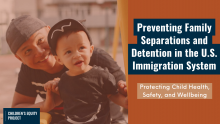
 Shared by Sandra Ware
on Mar 30, 2023
Shared by Sandra Ware
on Mar 30, 2023


 Shared by Sandra Ware
on Feb 7, 2023
Shared by Sandra Ware
on Feb 7, 2023

 Shared by Kirsten Greenwell
on Jun 30, 2021
Shared by Kirsten Greenwell
on Jun 30, 2021

 Shared by Linda Lu
on Dec 4, 2019
Shared by Linda Lu
on Dec 4, 2019


 Shared by Housing Is
on Jun 5, 2019
Shared by Housing Is
on Jun 5, 2019


 Shared by Housing Is
on May 21, 2019
Shared by Housing Is
on May 21, 2019

 Shared by Housing Is
on May 1, 2019
Shared by Housing Is
on May 1, 2019

 Shared by Housing Is
on Apr 30, 2019
Shared by Housing Is
on Apr 30, 2019
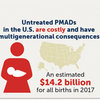
 Shared by Housing Is
on Apr 29, 2019
Shared by Housing Is
on Apr 29, 2019
 Shared by Housing Is
on Apr 4, 2019
Shared by Housing Is
on Apr 4, 2019
 Shared by Housing Is
on Mar 26, 2019
Shared by Housing Is
on Mar 26, 2019
 Shared by Housing Is
on Mar 15, 2019
Shared by Housing Is
on Mar 15, 2019

 Shared by Housing Is
on Mar 8, 2019
Shared by Housing Is
on Mar 8, 2019
